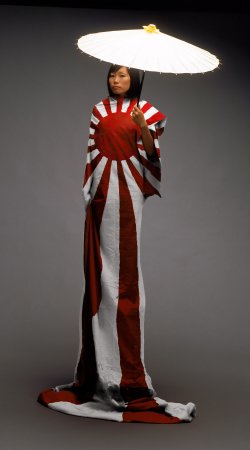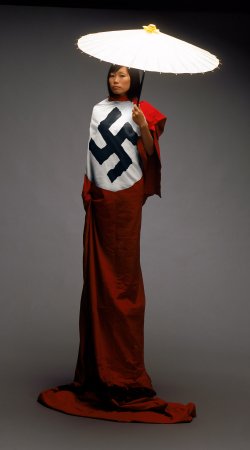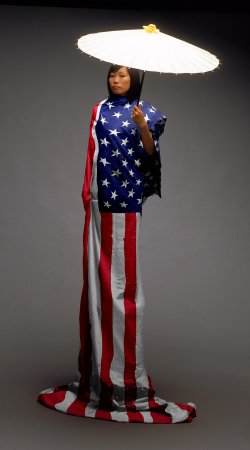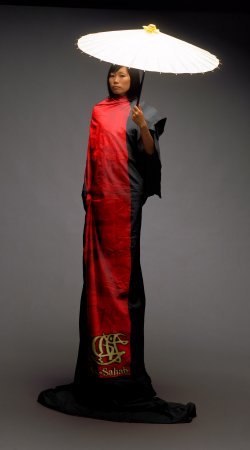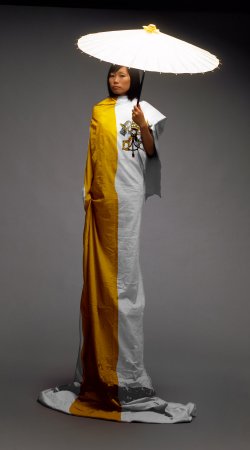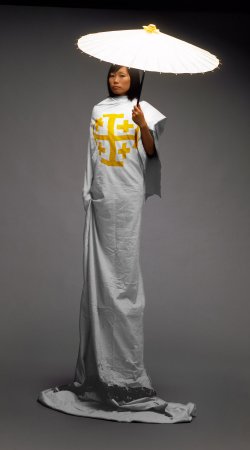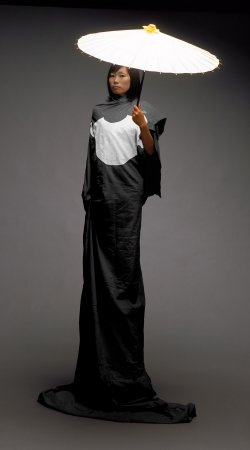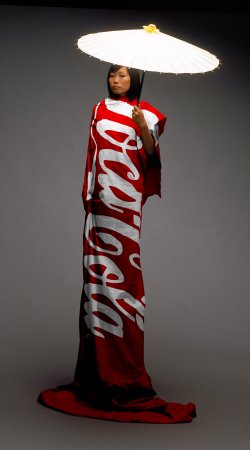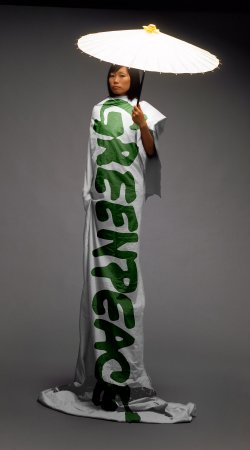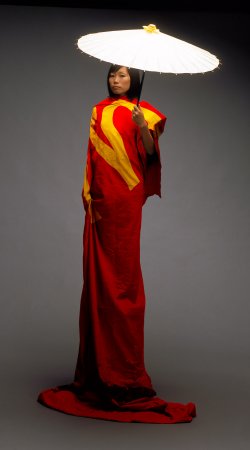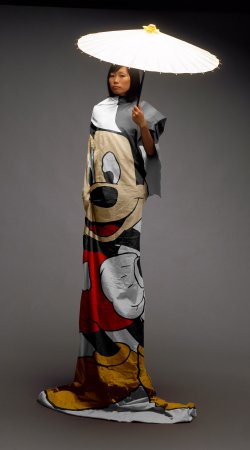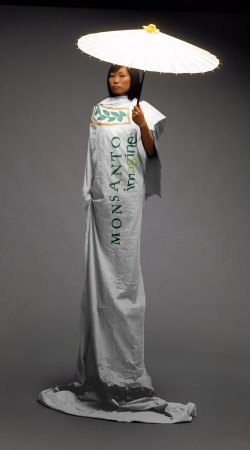Brainwashing can be the universal signifier for ideology.
Belief
The construct of reality stems from the language we use to create it. Meaning isn’t fixed so the interpretation of the same word by two people can will carry different connotations. The act of defining words is the start of creating a reality and making an ideology.
Belief is an installation where my wife is playing the main character, strapped in a stretcher, covered in white fabric and wearing headphones. Word pairs play simultaneously, one word in each ear.
I wanted to relate current events on the Korean peninsula, Japan and the USA to my family’s experiences in Central Europe during the Cold War. Looking at the Cold War from both sides, one controversial term stands out—“brainwashing.”
Fifteen years ago
I took an old Soviet flag—this flag was originally my trophy from my birth country, I took it when I was finally allowed to visit my extended family for the first time since I was a child—and I asked my wife to pose with it in the studio. In this photo series, the protagonist changes ideology easily like clothing.
Brainwashing
This word was directly translated into American English from the Chinese xǐnăo (洗脑), during the Korean War from incidents involving captured US pilots revealing their use of biological weapons. Even in times of peace we can imagine what hidden forces operate behind the smiling masks of international diplomacy.









